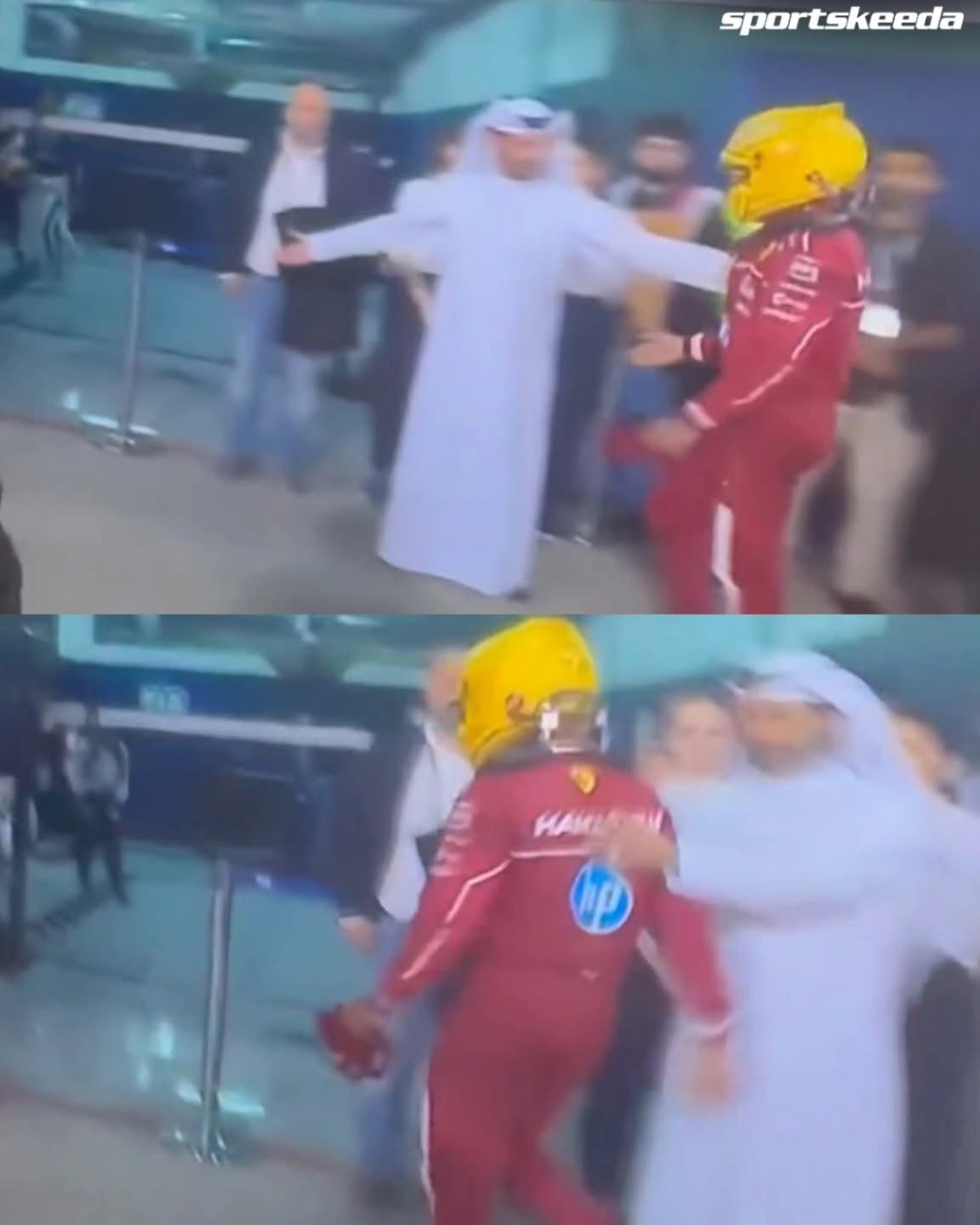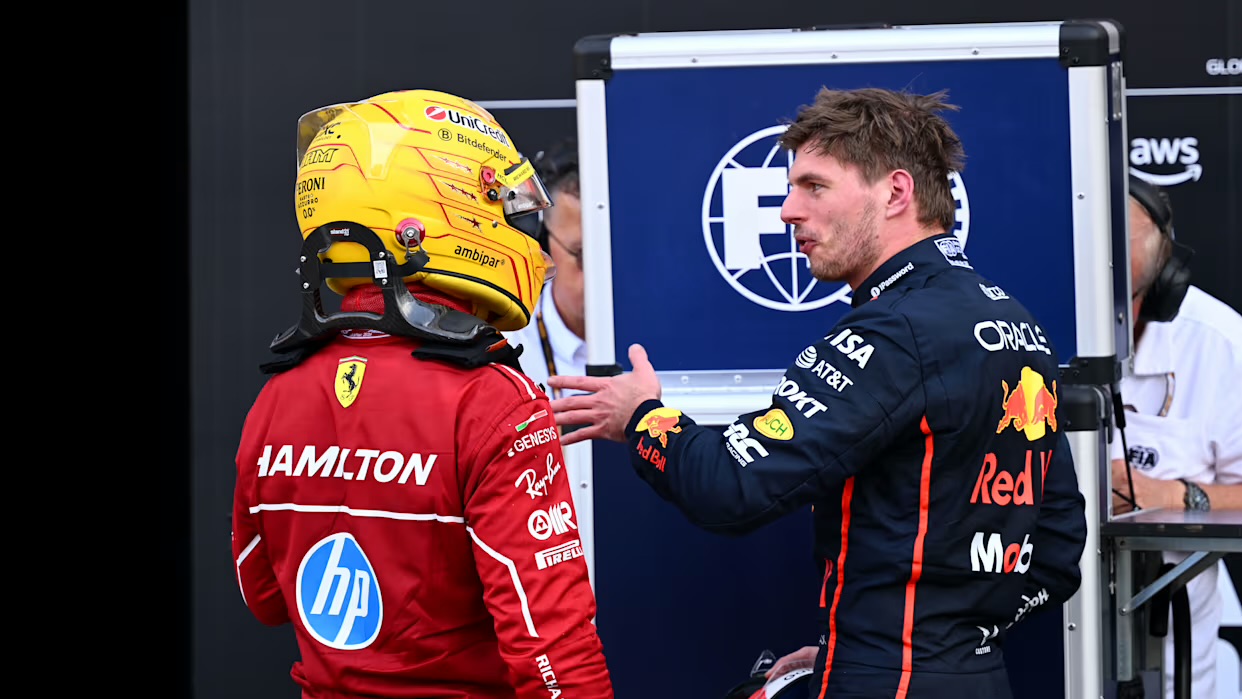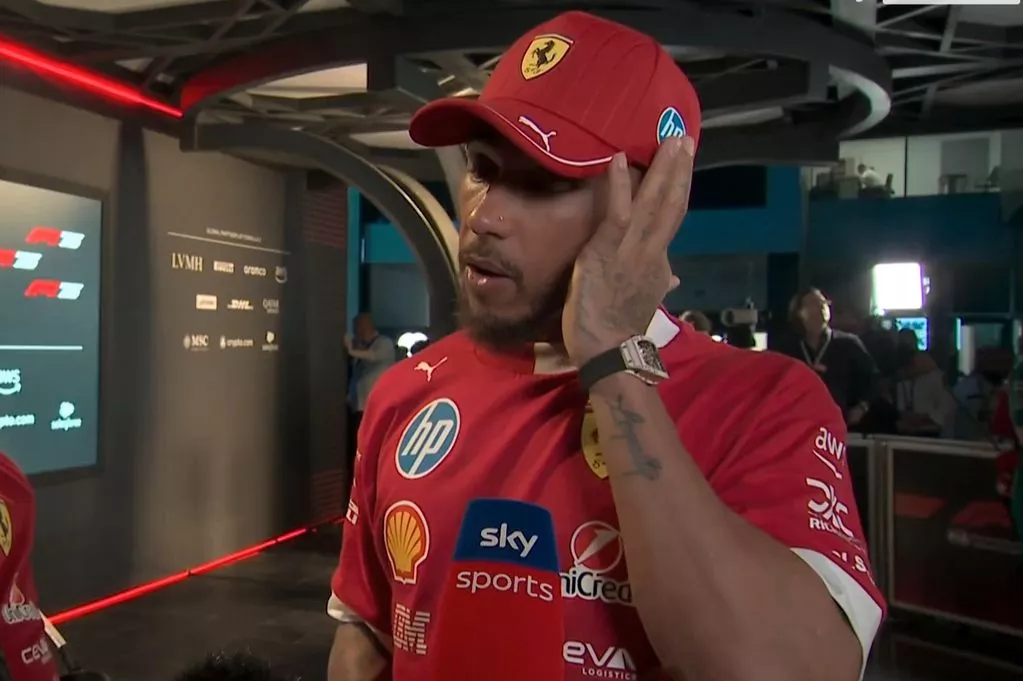Lewis Hamilton’s decision to seemingly snub FIA President Mohammed Ben Sulayem after the 2025 Bahrain Grand Prix sparked widespread speculation and reignited conversations about the increasingly tense relationship between the seven-time world champion and motorsport’s governing body. While some viewed it as a small gesture amid the usual post-race chaos, those who have followed Hamilton’s strained history with the FIA under Ben Sulayem’s leadership understood there was more beneath the surface.
A Symbolic Snub with Deeper Roots
The moment in question occurred during the podium celebration when Hamilton, who had just finished on the podium, appeared to avoid direct interaction with Ben Sulayem. While the president was present during the trophy ceremony, Hamilton made no effort to acknowledge or engage with him, even skipping the customary handshake—a sharp contrast to how drivers often behave in these formal, high-profile events.
To the casual observer, this might seem like an oversight. But for Hamilton, who has never shied away from making bold, symbolic gestures to communicate his stance, the snub likely reflected a deeper disapproval of the FIA’s leadership and ongoing issues regarding transparency, consistency, and ethics within the sport.
The Strained Relationship
Tensions between Hamilton and Ben Sulayem have existed since the latter took over as FIA president in late 2021. The most notable flashpoint was the controversial end to the 2021 Abu Dhabi Grand Prix, which ultimately cost Hamilton a record-breaking eighth world title. Although Ben Sulayem was not directly responsible for that incident, his subsequent handling of the fallout—particularly the FIA’s investigation process and refusal to fully acknowledge fault—was met with frustration by both Hamilton and the Mercedes camp.
Over the years, Hamilton has also been critical of various FIA decisions that he perceived as lacking fairness or clarity, particularly in how penalties are handed out, rule changes are implemented, and matters of driver safety are handled. His advocacy for diversity and inclusion in the sport has often seemed at odds with the FIA’s pace on such issues, creating additional friction between him and the organization.
Helmet Ban Controversy and Personal Freedoms
Another point of contention came when the FIA introduced tighter regulations around drivers wearing political or personal messages during races, including helmet designs. Hamilton, who often uses his helmet to promote social causes such as racial justice, LGBTQ+ rights, and environmental advocacy, saw these restrictions as a form of censorship. While other drivers also expressed discontent, Hamilton was the most vocal and persistent, seeing the move as a step backward for a sport that needs to modernize and reflect the values of its global fanbase.
Ben Sulayem’s comments on these issues—including those suggesting drivers should “focus on racing, not politics”—did little to bridge the gap. To Hamilton, these statements undermined the progress he’s worked to achieve in making F1 a more socially conscious sport.
A Message Without Words
So when Hamilton failed to acknowledge Ben Sulayem in Bahrain, it wasn’t just a snub—it was a message. A message that, despite the passage of time, the wounds from previous years haven’t fully healed. A message that Hamilton, as a global icon and one of the sport’s most influential figures, will continue to use his platform to challenge the status quo and stand against leadership decisions he deems unacceptable.
Looking Ahead
With Hamilton set to move to Ferrari in 2025, many thought his relationship with the FIA might shift as he enters a new chapter. However, Bahrain was a clear reminder that his principles remain unchanged, no matter what colors he wears. It also sets the tone for what could be a turbulent year—not just on the track but behind the scenes in the political arena of Formula One.
Whether Ben Sulayem and the FIA take Hamilton’s gesture as a wake-up call remains to be seen. But one thing is certain: Lewis Hamilton’s silence in Bahrain spoke louder than words.




